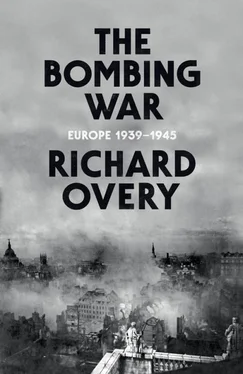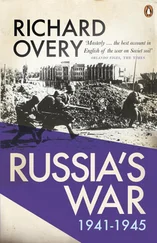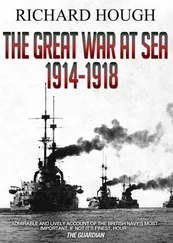The Bulgarian government had expected bombing for some time. While the regime struggled to come to terms with internal dissent, the Soviet presence in the east and Allied demands for unconditional surrender, it also sought ways to appease the Germans in case they decided to occupy Bulgaria. In the course of 1943 the deportation of Jews from the occupied areas of Thrace was completed and, despite the hostility of the Tsar, the German authorities in Sofia persuaded the Bulgarian government to deport native Bulgarian Jews as well. It was agreed that they would first be transferred to 20 small towns in the hinterland around Sofia and in May 1943 some 16,000 Jews were taken at short notice from the capital and parcelled out among eight provinces. The Filov government linked the Jewish policy with bombing. When the Swiss ambassador asked Filov to stop sending Thracian Jews to Auschwitz on humanitarian grounds, Filov retorted that talk of humanity was misconceived when the Allies were busy obliterating the cities of Europe from the air. Moreover, when he failed to take up a British offer in February 1943 to transport 4,500 Jewish children from Bulgaria to Palestine, he feared that Sofia might be bombed in retaliation. 12Once the Jews of Sofia had been deported to the provinces, anxiety revived again in Bulgaria that the Allies would now no longer hesitate to bomb from fear of killing Jews. In the end the Jews of Bulgaria not only escaped deportation to Auschwitz but also escaped the bombing, which left much of Sofia’s Jewish quarter in ruins.
It was not the Jewish question that invited Allied bombing in November 1943, though many Bulgarians assumed that it was. The first raids seemed to presage an onslaught of aerial punishment and the population of the capital gave way to a temporary panic. Yet the first two attacks in November were followed by two desultory operations the following month and nothing more. Some 209 inhabitants in Sofia had been killed and 247 buildings damaged. The ‘sharp lesson’ was not sharp enough for the Allies because it did little to encourage Bulgaria to seek a political solution while the military value of the attacks was at best limited, hampered by poor bombing accuracy and gloomy Balkan weather. On Christmas Day 1943, Churchill wrote to Eden that the ‘heaviest possible air attacks’ were now planned for Sofia in the hope that this might produce more productive ‘political reactions’. 13On 4 January 1944 a large force of 108 B-17 Flying Fortresses was despatched to Sofia, but with poor visibility the attack was aborted after a few bombs were dropped on a bridge. Finally, on 10 January 1944 the first heavy attack was mounted by 141 B-17s, supported during the night of 10–11 January by a force of some 44 RAF Wellington bombers. This attack was devastating for the Bulgarian capital: there were 750 dead and 710 seriously injured, and there was widespread damage to residential housing and public buildings. The air-raid sirens failed to sound because of a power cut. This time the population panicked entirely, creating a mass exodus. By 16 January, 300,000 people had left the capital. The government abandoned the administrative district and moved out to nearby townships. It took more than two weeks to restore services in the capital, while much of the population abandoned it permanently from fear of a repeat attack. On 23 January the German ambassador telegraphed back to Berlin that the bombing changed completely the ‘psychological-political situation’, exposing the incompetence of the authorities and raising the danger of Bulgarian defection. 14The government ordered church bells to be pealed as an air-raid warning, in case of further power cuts. 15
The second major raid, of 10 January, did pay political dividends. While Filov tried unsuccessfully to persuade a visiting German general, Walter Warlimont, Deputy for Operations on Hitler’s staff, to mount a revenge attack on neutral Istanbul – whose consequences might well have been even more disastrous for Bulgaria – most Bulgarian leaders had come to realize that the German connection had to be severed as soon as possible and a deal struck with the Allies. 16The Bishop of Sofia used the occasion of the funeral for the victims of the bombing to launch an attack on the government for tying Bulgaria to Germany and failing to save the people from war. That month an effort was made to get the Soviet Union to intercede with the Western Allies to stop the bombing, but instead Moscow increased its pressure on Bulgaria to abandon its support for the Axis. 17In February the first informal contacts were made with the Allies through a Bulgarian intermediary in Istanbul to see whether terms could be agreed for an armistice. Although hope for negotiation had been the principal reason for starting the bombing, the Allied reaction to the first Bulgarian approach following the raids was mixed. Roosevelt wrote to Churchill on 9 February suggesting that the bombing should now be suspended if the Bulgarians wanted to talk, a view shared by British diplomats in the Middle Eastern headquarters in Cairo. 18Churchill scrawled ‘why?’ in the margin of the letter. He was opposed to ending the bombing despite a recent report from the British Joint Intelligence Committee (JIC) which observed that the first bombing in November 1943 had achieved no ‘decisive political result’. He had already authorized the bombing of the Bulgarian ports of Burgas and Varna, which were added to the list of priority targets, subject to political considerations. 19In January 1944 the British War Cabinet, in the event of a German gas attack, considered the possibility of retaliatory gas bomb attacks against Germany and its allies, and included Bulgaria on the list. 20On 12 February Churchill replied to Roosevelt that in his view the bombing had had ‘exactly the effect we hoped for’ and urged him to accept the argument that bombing should continue until the Bulgarians began full and formal negotiations: ‘if the medicine has done good, let them have more of it’. 21Roosevelt immediately wired back his full agreement: ‘let the good work go on’. 22
Some of the evidence coming out of Bulgaria seemed to support Churchill’s stance. Intelligence reports arrived detailing the rapid expansion of both the Communist partisan movement and the Fatherland Front. The partisans contacted the Allies through a British liaison officer stationed in Bulgaria, encouraging them to keep up the bombing in order to provoke the collapse of the pro-German regime and help expand support for the resistance. The partisans sent details about the central administrative area in Sofia, bordered by the recently renamed Adolfi Hitler Boulevard, which they said was ripe for attack; at the same time partisan leaders asked the Allies not to bomb the working-class districts of Sofia, from which most of their recruits were drawn. By March the partisans were finally organized by the Bulgarian Communists into the National Liberation Revolutionary Army. 23As a result of the evidence on the ground the Western Allies, with Stalin’s continued though secret support (the Soviet Union did not want Bulgarians to think they had actively abetted the bombing), accepted Eden’s argument that by ‘turning on the heat’ on Bulgarian cities it might shortly be possible either to provoke a coup d’état or to batter the government into suing for peace. 24On 10 March Sir Charles Portal told Churchill that he had ordered heavy attacks on Sofia and other Bulgarian cities as soon as possible. 25
On 16 March and then on 29–30 March the Allies launched the most destructive attacks of all on Sofia, as well as subsidiary attacks on Burgas, Varna, and Plovdiv in the interior, designed to disrupt rail communications and sea traffic for the Turkish trade with Germany. The attacks were aimed predominantly at the administrative city centre of Sofia and carried a proportion of incendiaries, 4,000 in all, in order to do to Sofia what had been done so effectively to German targets. The raid of 16 March burned down the royal palace; the heavy raid of 29–30 March by 367 B-17s and B-24s, this time carrying 30,000 incendiaries, created a widespread conflagration, destroying the Holy Synod of the Bulgarian Orthodox Church, the National Theatre, several ministries and a further 3,575 buildings, but killing only 139 of the population that had remained. 26The last major raid, on 17 April by 350 American bombers, destroyed a further 750 buildings and heavily damaged the rail marshalling yard. During 1944 the death toll in Sofia was 1,165, a figure that would have been considerably higher had it not been for the voluntary evacuation of the capital. The incendiary attacks hastened the disintegration of Bulgarian politics and increased support for the Soviet Union, whose armies were now within striking distance. But only on 20 June 1944, several months after the bombing, did the new government of Ivan Bagryanov begin formal negotiations for an end to Bulgarian belligerency, still hoping to keep Bulgaria’s territorial spoils and avoid Allied occupation. 27By this time the Allies had lost interest in bombing Bulgaria, which slipped further down the list of priority targets as the bombers turned their attention to Budapest and Bucharest in the path of the oncoming Red Army. 28
Читать дальше
Конец ознакомительного отрывка
Купить книгу












